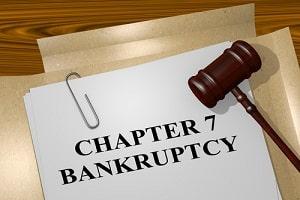Know the Implications and Options of Filing for Chapter 7 Bankruptcy
When you are drowning in debt, it is easy to consider filing for Chapter 7 bankruptcy. It is, after all, a way to effectively eliminate most (if not all) of your debt so that you can begin to turn things around. It is, however, important to understand that there are some negative implications and that, in some circumstances, there may be other, better options if you live in New York.
Know Your State’s Laws
According to New York state law, individual debtors must go through credit counseling within six months prior to filing for bankruptcy. An analysis of income and expenses during that same time period will also be done to ensure the debtor’s median income qualifies for Chapter 7 bankruptcy. If the debtor does not qualify, he or she may still be eligible to file for a Chapter 13 bankruptcy.
Be Aware of Possible Exemptions
Bankruptcy is not a fix-all solution. It is simply designed to give you some breathing room and the chance to get your financial life back in order. As such, debtors need to understand that not all debts can be erased or forgiven. For example, federally protected student loans are generally excluded from being claimed in a Chapter 7 bankruptcy filing, as are any debts relating to child support, alimony, and certain tax debts.
Your Co-Signer Will Still Be on the Hook
In a perfect world, Chapter 7 would release both debtors and their co-signers from debt. Unfortunately, this is not the case. In fact, co-signers are often held responsible for all or at least some of the debt, even if the primary debtor is released during a bankruptcy. To be released under bankruptcy, co-signers would have to qualify and file in their own state, under their own laws, and under their own income-to-debt ratio.
Bankruptcy Stays on Your Credit for Up to 10 Years
Most people are probably aware that bankruptcy stays on their credit for as long as 10 years. However, many often underestimate just how long that truly is in the grand scheme of things. Following a bankruptcy, a person’s credit rating will drop dramatically. Even though a bankruptcy’s weight in credit decisions may decrease over time, potential creditors still often require a re-establishment of good credit before they will even consider approving lines of credit for previous bankruptcy filers.
Repossession Can Still Happen
Although bankruptcy may give debtors some additional time to work out an arrangement with certain creditors, they are still at risk for repossession when it comes to a lien. Cars and homes can still be repossessed, as can any other type of property under a secured loan. Whether or not your property will be seized depends on your specific circumstances.
Explore Your Options With Help from a Rockland County Bankruptcy Lawyer
If you are over your head in debt, bankruptcy is not the only answer. In fact, many debtors find alternative paths to financial order, but this is typically done with the assistance and guidance of a skilled professional. With over 35 years of legal experience, Attorney Robert Lewis can help. Schedule a free consultation with our skilled Hudson Valley debt management attorney by calling the Law Offices of Robert S. Lewis today at 845-358-7100 and get on the road to financial recovery.
Source:
https://www.thestreet.com/opinion/9-nasty-pitfalls-of-chapter-7-bankruptcy-that-you-should-know-13374910



